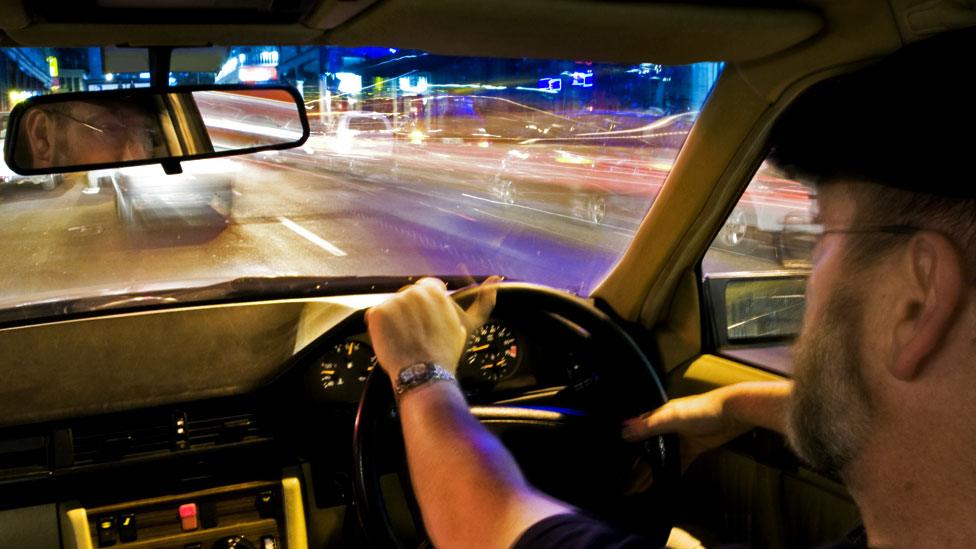Taxi driver shortage 'puts public safety at risk'
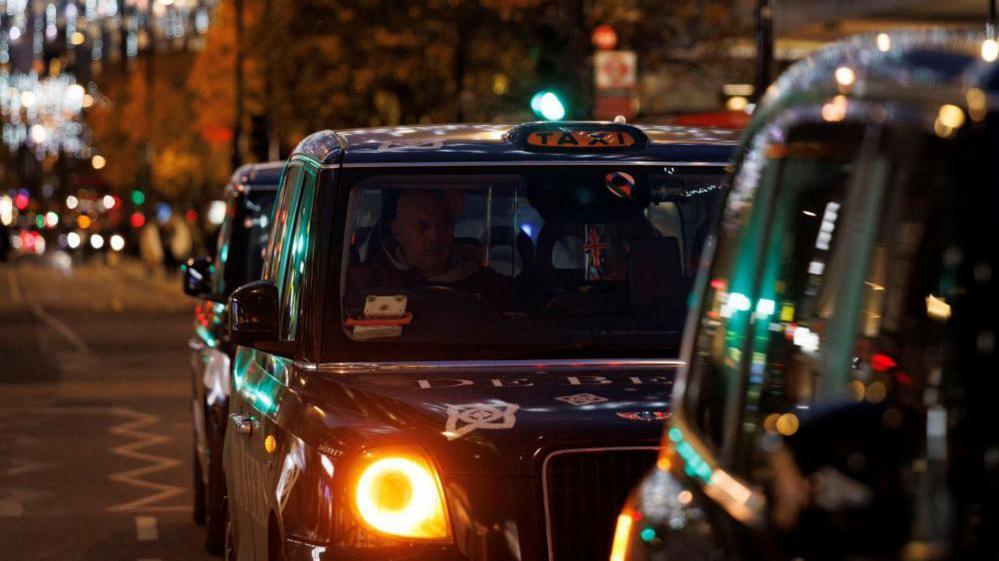
There are a number of challenges facing the taxi and private vehicle hire industry
- Published
Industry leaders are warning of a "major" taxi driver shortage in England which could put public safety at risk over the festive period.
Thousands of drivers quit the industry during the Covid-19 pandemic and numbers have failed to fully recover.
Steve Wright from the Licensed Private Hire Car Association (LPHCA) said he feared people would be left "stranded", leading to a rise in sexual assaults, fights outside pubs and drivers being attacked.
The Norwich Taxis Association said the city had lost a third of its drivers since before the pandemic.
According to the Department for Transport, there are 14,000 fewer licensed Hackney carriage drivers, external in England compared with 2019.
It is thought many left the industry to work for delivery firms such as Amazon and Uber Eats.
Industry leaders are calling for councils to offer more financial incentives.
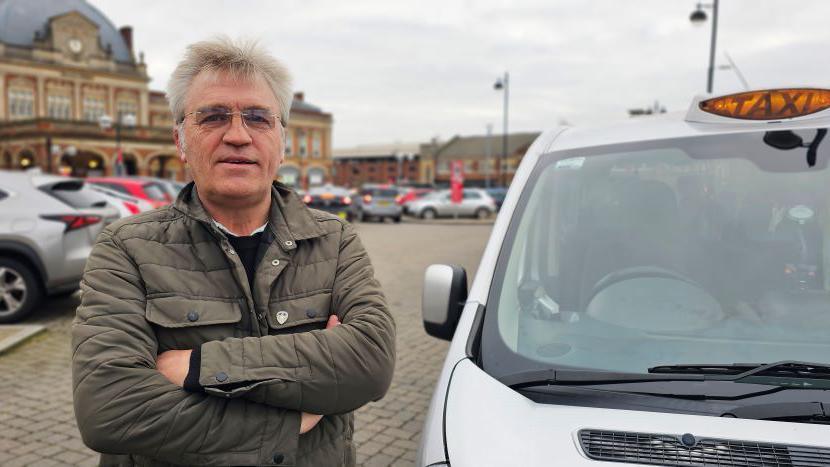
Craig Dimbleby from the Norwich Taxis Association says the industry is getting "no support"
Local authorities, which are responsible for licensing taxi drivers, all have their own set of unique entry requirements.
Some councils, such as East Suffolk, requires drivers to sit a two-day college course, external, as well as complete a "basic reading, writing and arithmetic test".
Others insist cars are of a certain standard to meet emissions and disability targets.
'Free for all'
Steve Wright, chair of the LPHCA, said a "perfect storm" faced the industry.
"If policies don't change, people are going to be sexually assaulted, drivers attacked, fist fights outside of pubs and special needs children who can't get to school," he said.
"People already can't get home, they're stranded and at serious risk."
Legislation means private hire companies can accept bookings anywhere in England and Wales outside of London, regardless of where they are licensed.
However, Hackney carriages, which can be hailed in the street, can only accept fares, external in their licensed area.
Craig Dimbleby from the Norwich Taxis Association said drivers were travelling to the city illegally to "ply" for work.
"We've now got cars coming from all over the UK working the city centre, especially at weekends," he said.
"We've seen plates from Harlow, Sheffield and Birmingham. It's a free for all."
Norwich City Council said drivers caught flouting the rules would be investigated.
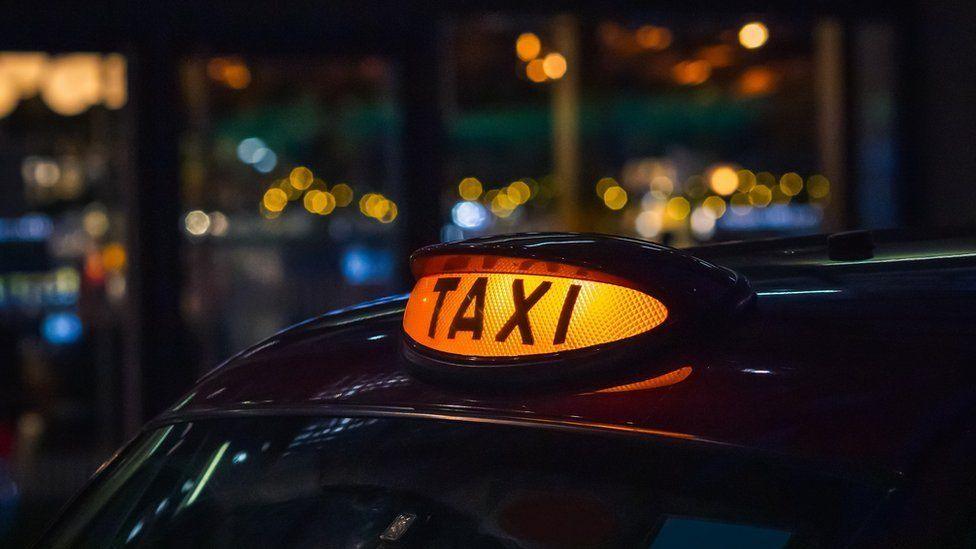
Industry leaders say people heading out this Christmas should pre-book journeys to avoid being left stranded
While the number of Hackney carriage drivers in England has fallen since 2019, the number of private hire vehicle drivers has increased by 11,000.
However, fares for private hire journeys may soon be increased after the High Court ruled that companies rather than drivers were liable for contracts - meaning they could soon be required to pay a 20% VAT levy on profit margins.
The ruling followed a legal challenge brought by the ride-hailing app Uber.
Michael Kill, chief executive of the Night Time Industry Association, which represents thousands of bars and clubs, said the introduction of VAT would put further pressure on the industry.
"This additional cost could make [customers] make other choices, like vulnerable people, people having to head to hospital, as well as people getting home safely after 11 o'clock in the evening, both staff and customer," said Mr Kill.
An HMRC spokesperson said: "It's always been the case that taxi and private hire vehicle fares are liable to VAT at the standard rate (20%), so it must be charged whenever the provider of such journeys exceeds the VAT registration threshold or has voluntarily registered for VAT."
The government said it would consult on the impacts of the High Court ruling in early 2024.
Follow East of England news on Facebook, external, Instagram, external and X, external. Got a story? Email eastofenglandnews@bbc.co.uk, external or WhatsApp 0800 169 1830
- Published29 November 2023
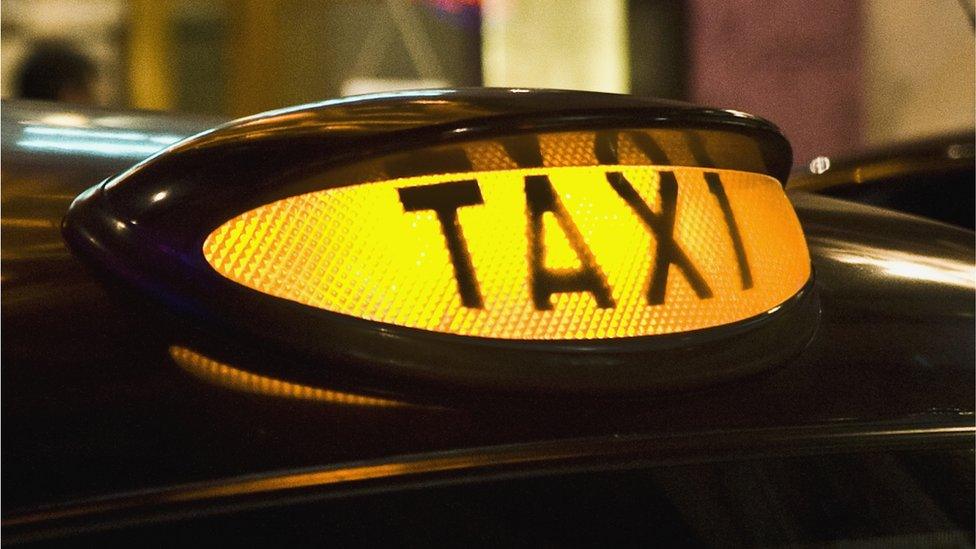
- Published8 November 2023
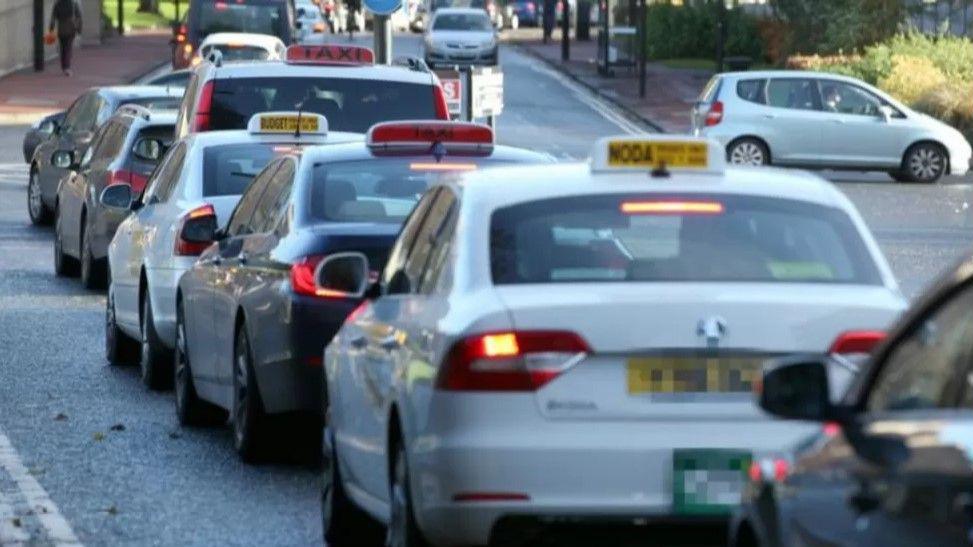
- Published27 April 2023
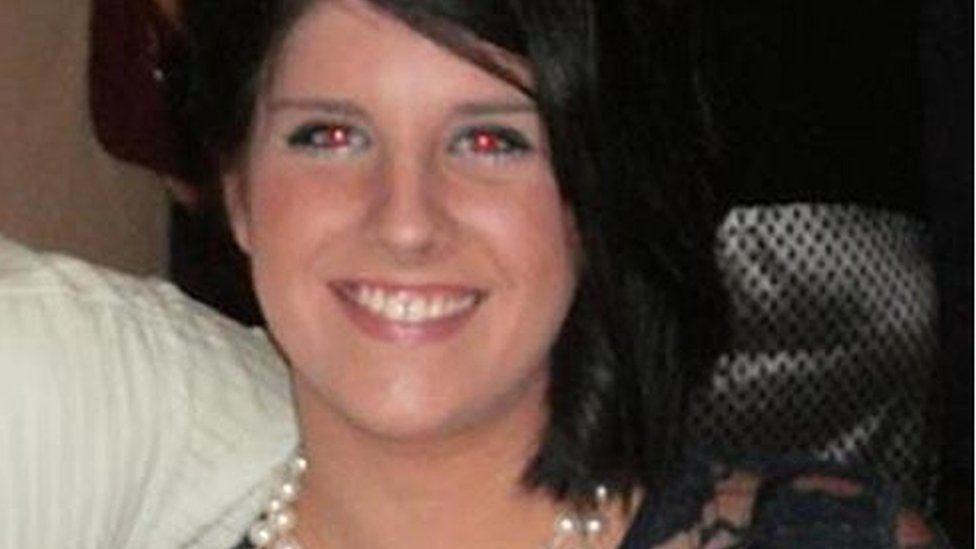
- Published5 November 2021
